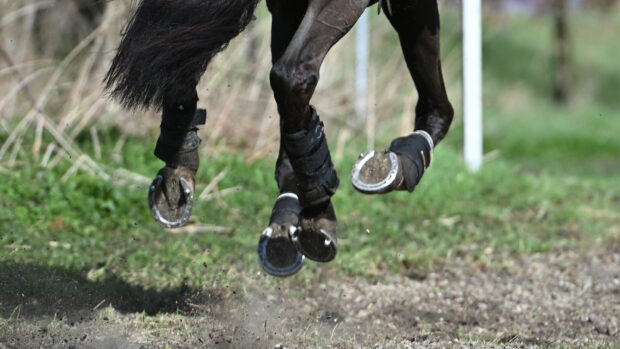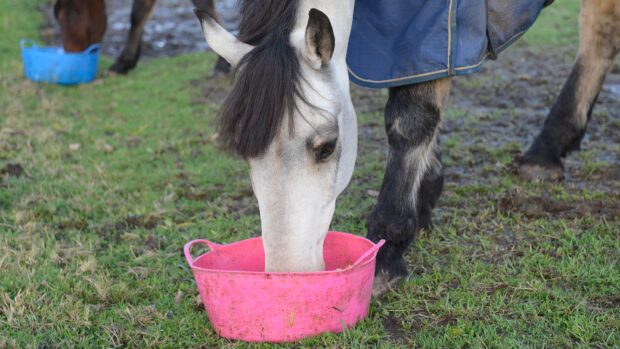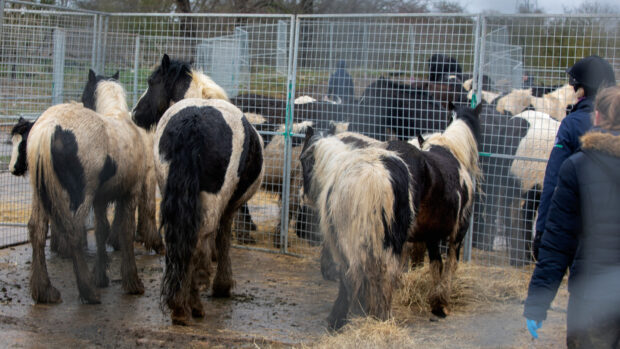Former four-time Badminton winner and one of the world’s leading cross-country course-designers, Mark Phillips ponders course-design and a new model for British Eventing
I KNOW I’m getting old! My body reminds me every morning of the abuses it received through years of athletics, rugby and riding horses.
I still enjoy occasionally getting on a horse when I’m teaching. Teaching is chiefly instilling the basics and when they are in place, the fun bit is helping produce that last 10% of brilliance from talented horses and riders.
I also still love my course-designing. Both teaching and designing, I enjoy being able to bring a smile to people of all ages and standards, both in an arena and cross-country schooling.
In sport, we’re always seeing improvements in technique and standards. It’s interesting trying to stay ahead of that curve course-designing.
This past month I’ve been responsible for two CCI4*-Ss in America, one with $60,000 prize money (around £46,000), one the last run before Kentucky. Both tracks, for different reasons, caught the riders’ attention.
Piggy March wants more rider-frighteners – yes, we have the technology to do that within acceptable risk boundaries and I helped Stuart Buntine with the track at Thoresby. But the team management said they wanted the course to be normal as for many it was their first advanced run before Badminton Horse Trials.
Next question – do you want your last run before a five-star to be a confidence-booster or a frightening test? Tell us course-designers what you want and when, and we can produce it, but we can never please all the people all the time.
Prize money is another subject. Spectators pay for entertainment. Six hours of cross-country is not entertainment. Why do Formula One, football, rugby matches, showjumping grand prix and most movies all finish within two hours? That’s a time-frame that suits most people.
It’s unrealistic to think there is a large public out there prepared to pay to watch a few “big names” do dressage, showjumping and see a few cross-country fences jumped, though die-hard fans will come. Meanwhile, sponsors require real value for their money these days.
Back to the future
BRITAIN’S eventing stars must all remember that winning gold in Tokyo and Avenches last year was the easy bit.
They will start favourites this year at the eventing World Championships in Pratoni in September, but the likes of Michael Jung, Julia Krajewski, Ingrid Klimike and Andreas Dibowski have all been working overtime to spoil that golden dream. So I was much relieved to hear Chris Bartle and Dickie Waygood have increased and intensified their winter training.
I continue to worry about the future of British Eventing (BE). New chair Mark Sartori is making huge strides in the governance protocols, but I worry about the model.
Fifty years ago, we started with hunter trials and riding club events and progressed to BE, at the 3ft 7in novice level, when we were ready. Then in came BE100, BE90 and BE80, and hunter trials and their like declined. The BE business model exploded, more than doubling membership. Every pyramid is the same shape and the grassroots supported the top end of the sport.
Now we are in 2022, post-Covid and with 10% inflation staring us in the face. The grassroots riders can now achieve the same recreational pleasure at a much lower price elsewhere – it’s no surprise that BE membership is plummeting annually, while unaffiliated series such as the Cotswold Cup gain momentum.
Are we therefore heading for a time when unaffiliated events are set to replace riding club and hunter trial competitions of old? Grassroots riders maybe then only become BE members when they want to go to 1.10m – novice level – or above across the country?
I suspect the answer is “yes”, so what all parties need to work out is how to carry forward unaffiliated qualifications into the BE system, as well as how the sport’s finances can work in that scenario.
I’m not sure what the future is, but the business model has to change for both BE and BE organisers.
♦ Do you prefer to compete affiliated or unaffiliated – and why? Email hhletters@futurenet.com
- This column is also available to read in full in Horse & Hound magazine, on sale Thursday 28 April
You may also be interested in…

*New columnist* Piggy March: ‘We need sufficient rewards to make it worthwhile’

Farewell to world team gold medallist who was third at Badminton: ‘My absolute hero, my darling boy’

Badminton cross-country course for 2022 five-star event unveiled: see exclusive taster photos, plus course map

Subscribe to Horse & Hound magazine today – and enjoy unlimited website access all year round




